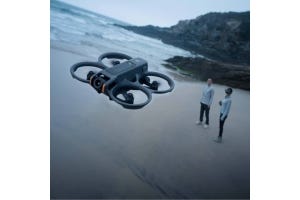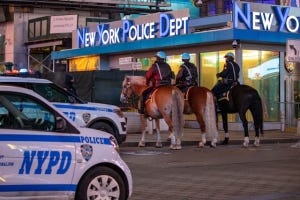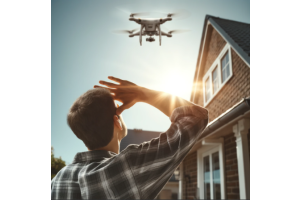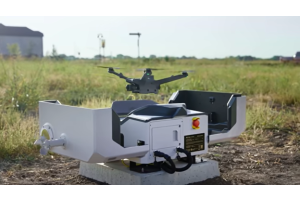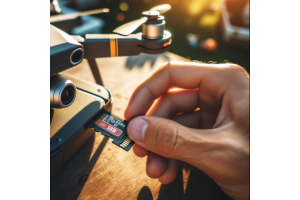Tech advancements with camera drones, long range units and even FPV (first-person-view) models have made them more affordable, versatile, and accessible to the general public. Now, everyone from the police to your neighbor who loves tech might be flying one. They are employed in a multitude of sectors including agriculture, real estate, search and rescue missions, utility inspection and even film production. But it hasn’t been all roses. A lot of people have been put on edge regarding their privacy. Is it okay for a drone to hover outside our bedroom window? What about those powerful cameras monitoring crowds passing down the street but still being able to surveil your backyard? Can your family enjoy a BBQ without videos being recorded without your permission? This has sparked lots of debate rules around keeping our personal space, well, personal. And the courts in the U.S. are right in the middle of this.
Privacy at Stake
The crux of the issue lies in the drones' ability to hover over private properties, collecting data without the owner's consent or knowledge. While this capability comes in handy for things like managing disasters or logistical planning, it also opens a big can of privacy concerns. How much can this surveillance be considered an intrusion into personal space? You wouldn’t want to be enjoying a peaceful afternoon sunbathing in your backyard, feeling secure in your private sanctuary, then have some random drone flying by – and who knows if it's taking a video or photos? Or have your kids playtime outside being recorded from above. Say you're at a local community event, maybe a fair or a charity run, with drones overhead are snapping pics or videos. While it could be for a good cause, the lack of control over where those images end up or how they're used can make anyone uneasy. Where do you draw the line?
3 Key Court Cases on Drone Privacy
• Alaska Supreme Court: Warrant Required for Zoom-Lens Aerial Photos by Police
The ruling was part of the Supreme Court Live demonstration, an educational initiative presenting high-profile cases to high school audiences, this one held at Lathrop High School in November 2022. Justice Dario Borgesan, authoring the court's main opinion, articulated the court's stance that Alaskans rightfully expect privacy from technological surveillance by authorities.
The case goes back to a 2012 incident, with the arrest of Fairbanks resident John William McKelvey III, whose property was photographed by Alaska State Troopers. Acting on a tip, the troopers used a telephoto lens to capture evidence of alleged illegal marijuana growing on his land, leading to a search warrant and McKelvey's subsequent arrest.
The court's deliberation centered on the specifics of McKelvey's case as well as the broader questions of privacy rights under the Fourth Amendment of the U.S. Constitution and the Alaska Constitution's right-to-privacy clause. Fairbanks attorney Robert John, representing McKelvey, highlighted the ruling's potential to significantly curb law enforcement's capacity to conduct warrantless aerial surveillance of private property.
Two justices advocated for an extension of the ruling to require warrants for any aerial observation. Despite the ruling's implications, the Department of Public Safety expressed confidence that its operations would remain unaffected. They said their drone use has always followed the rules set by the courts from the start.
• Appeals Court Backs Texas in Drone Privacy Law Case
In the case of National Press Photographers Association v. McCraw, plaintiffs challenged the constitutionality of the Texas Privacy Act, enacted in 2013, which regulates drone usage over private property and certain facilities within the state.
The Texas Privacy Act, known formally as Chapter 423 of the Texas Government Code, includes Surveillance and No-Fly provisions aimed at protecting privacy. They restrict unauthorized drone surveillance and limits drone flights over critical sites, with criminal penalties and civil liabilities for breaches. There are exceptions for certain groups like law enforcement and the military, but the media isn't exempted.
A journalist drone owner and two media groups sued over a law. They argued it violates rights to gather news and is too vague. They also said federal law should override it. A Texas court agreed with them, stopping the law's enforcement.
The lawsuit was initiated by a journalist drone owner and two media-related organizations. They argued it violates rights to gather news and is too vague and overreaching. They also said federal law should override it. Initially, the United States District Court for the Western District of Texas sided with the plaintiffs against Chapter 423, halting its enforcement.
However, upon appeal, the Fifth Circuit overturned reversed this decision and backed the State of Texas. The court examined various legal issues, including the plaintiffs' right to sue and the constitutionality of Chapter 423. It recognized that the plaintiffs were legitimately concerned about Chapter 423 restricting their drone use for journalism, seeing it as a threat that justified their First Amendment challenge.
The court made a distinction between the types of provisions in the law. It decided the No-Fly provisions didn't affect freedom of speech because they're about flight, not expression. For the Surveillance provisions, the court concluded that the state's interest in protecting citizens' privacy rights was a good enough reason for the drone filming restrictions. The court also rejected the idea that federal rules override state drone laws about privacy and safety. The plaintiffs might still appeal this decision.
Also Read: Growing Concerns Over Activity In Protected Spaces (A DSLRPros Op-Ed)
• Drone Surveillance Gets To The Floor Of the Michigan Supreme Court
Over in Michigan is the case involving Todd Maxon's claim against Long Lake Township. Maxon alleges the township unlawfully used drone-captured imagery of his 5-acre property in a zoning dispute without obtaining a warrant.
Since the Michigan State Police became the nation's first department to use drones in 2015, their adoption has surged, with over 1,400 law enforcement agencies now utilizing this technology. This rapid integration of drones into policing strategies brings forth critical questions about the Fourth Amendment's safeguard against unwarranted search and seizure and the potential for trespassing on private property without consent.
Critics argue that the omnipresence of law enforcement drones could lead to a society where citizens are perpetually monitored, a scenario far removed from traditional American values of freedom and privacy.
Efforts to demystify drone operations and reassure the public have been undertaken by police departments, notably in Grand Rapids, where the police chief, Eric Winstrom, has actively engaged with the community to address concerns and outline the drones' intended use.
The Balancing Act
As drones start to play bigger roles in things like emergency services and urban planning, everyone agrees we need clear rules, especially about privacy. This means possibly new laws on where drones can go, what information they can collect, and how that data is managed. For police departments looking into drones, getting the right training is key to using them effectively and responsibly. This includes understanding everything from flying them safely to respecting privacy laws.
Our Advanced UAS Operator Training Course is tailored to equip your team with essential skills for various emergency scenarios, including search and rescue, hazmat situations, brushfires, and policing activities. Benefit from our hands-on experience with the latest drone technologies, ensuring your operations are both safe and efficient. Our training encompasses everything from UAS piloting skills, safety protocols, and FAA Part 107 certification preparation to advanced techniques like 3D mapping and nighttime operations.
Our lead instructor, Derrick Ward, brings over three decades of public safety experience, ensuring your team receives expert guidance. With customizable training options available at your location or ours in Southern California, we're committed to meeting your agency's specific needs. For more details and to arrange your training, contact us at (877) 299-1075 or sales@dslrpros.com, Monday to Friday, 7 AM - 5 PM PST.

